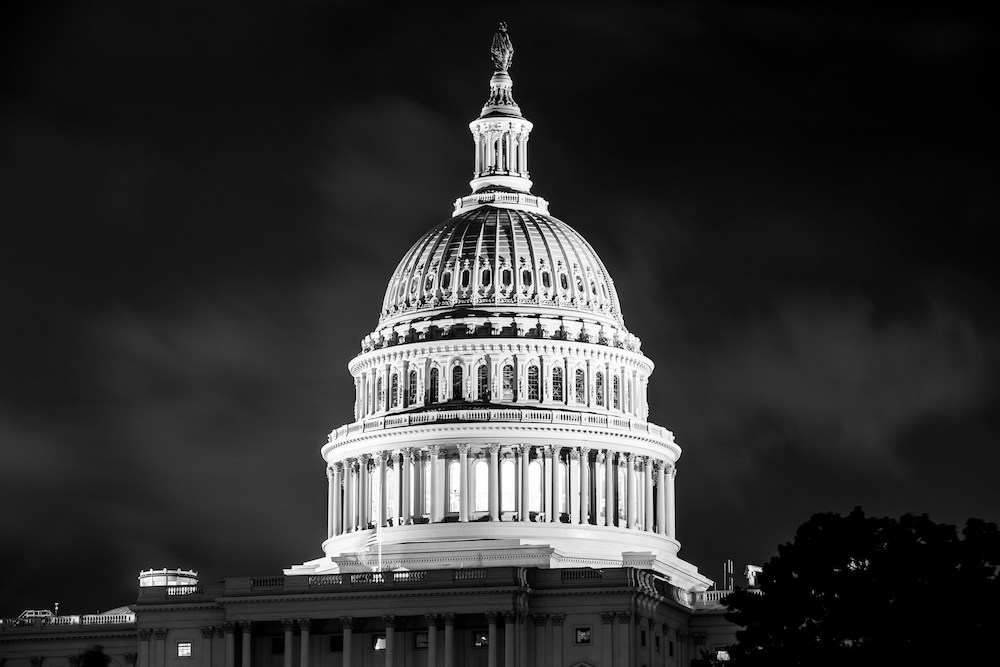
- Details
- By Chez Oxendine
- Finance
U.S. Senators Catherine Cortez Masto (D-Nev.) and Lisa Murkowski (R-Alaska) plan to introduce bipartisan legislation today to level the tax playing field between tribes and local and state governments, Tribal Business News has learned.
The Tribal Tax and Investment Reform Act of 2025 would reform the Internal Revenue Code of 1986 to expand tribes’ ability to issue governmental bonds, clarify rules around Indian lands, and create a $175 million annual tax credit for development in tribal communities.
“Tribes in Nevada and across the country deserve access to the same tools as state and local governments to strengthen their communities and support their local businesses and services like health, housing, and education,” Senator Cortez Masto said. “Our bill makes commonsense updates to the tax code to ensure fairness, create more good paying jobs, and keep more money in Indian County.”
The bill is largely similar to House bill HR 8318, which had strong bipartisan support when introduced by Rep. Gwen Moore (D-Wis.) in May 2024. The new Senate bill includes a few key differences from the prior House bill, most notably a fixed $400 million national bond volume cap for tribal governments and the addition of Alaska Native Corporation economic development bonds with a separate $45 million annual allocation. A full summary of the 11-section Senate bill is available here.
“By allowing tribal governments to make better use of housing tax credits, improve the ability to issue tax-exempt bonds and incentivize new investment incentives, we’re opening the door for them to finance more infrastructure projects and promote job growth,” Murkowski told Tribal Business News in an email. “Together, we have an opportunity to empower tribal nations to build stronger, more resilient economies.”
Kristina Woolston, CEO of Anchorage-based Old Harbor Native Corporation, said creating equal tax-exempt bonding opportunities for tribal governments and Alaska Native Corporations alongside state and local governments is “long overdue” and would serve as a “major stimulator for growth, economic development, and job creation in Indian Country.”
However, the Senate legislation faces an uncertain path forward since it is not part of the current reconciliation package, though lawmakers have included two tribal tax provisions in the House version of President Trump’s “One Big Beautiful Bill Act.” The first would expand adoption tax credits for tribal families and the second would increase housing tax credits for projects on tribal lands.
Speaking on background, a representative with Cortez Masto’s office said the included provisions were a good start, but not enough.
“As a whole, the Republican tax bill doesn’t adequately address tribal priorities and threatens tribes’ access to health care and other critical benefits,” the representative said. “Senator Cortez Masto will continue pushing for passage of her full legislation that best addresses tribal priorities.”
Growth Starters
All of the reforms in the Senate bill would create growth in Native economies, according to attorney Telly J. Meier, a partner at Hobbs, Straus, Dean & Walker LLP and former director of the IRS’s Office of Indian Tribal Governments.
“A lot of this would be putting tribes on equal footing and treating tribes like governments,” Meier told Tribal Business News. “I think the things that are being sought after here really would help tribes to expand their economies and become more self-sufficient.”
The legislation builds on broader tribal advocacy efforts for tax parity. During February Senate testimony, NAFOA President Rodney Butler called tax parity essential for tribal economic sovereignty, noting that state governments issued $47 billion in municipal bonds annually from 2014 to 2020, while tribes only issued $84 million.
Meier pointed to two provisions in the new legislation as growth starters: removing restrictions on tribal bond issuance and creating the $175 million tribal set aside for the New Markets Tax Credit program, which supports development in low income communities.
Meier said bonds often catalyze private investment and growth, and that he saw plenty of demand for the New Markets Tax Credit program in tribal communities.
“I think there's just a lot of interest in these programs. I think that would be scooped up immediately because of the demand, which at least in Indian Country, is a lot more than that set-aside there,” Meier said. “I think everything here is really positive.”
Still, tribal advocates have long pushed for any NMTC set-aside for Indian Country to go to Native-controlled community development entities (CDEs) as opposed to non-Native developers working in Native communities, per prior Tribal Business News reporting.
While two portions of Moore’s House bill made it into the wider reconciliation bill, the Senate has a chance to include further provisions in their return proposal, Meier said.
“The hope would be that the provisions here would be that with the Senate would be considering their bill, the ones in the House would stay and these other provisions could be options they could fold into a reconciliation bill,” he said. “Short of that, they could be looking at the year-end extenders' bill for another path.”
Brian Edwards contributed reporting.
